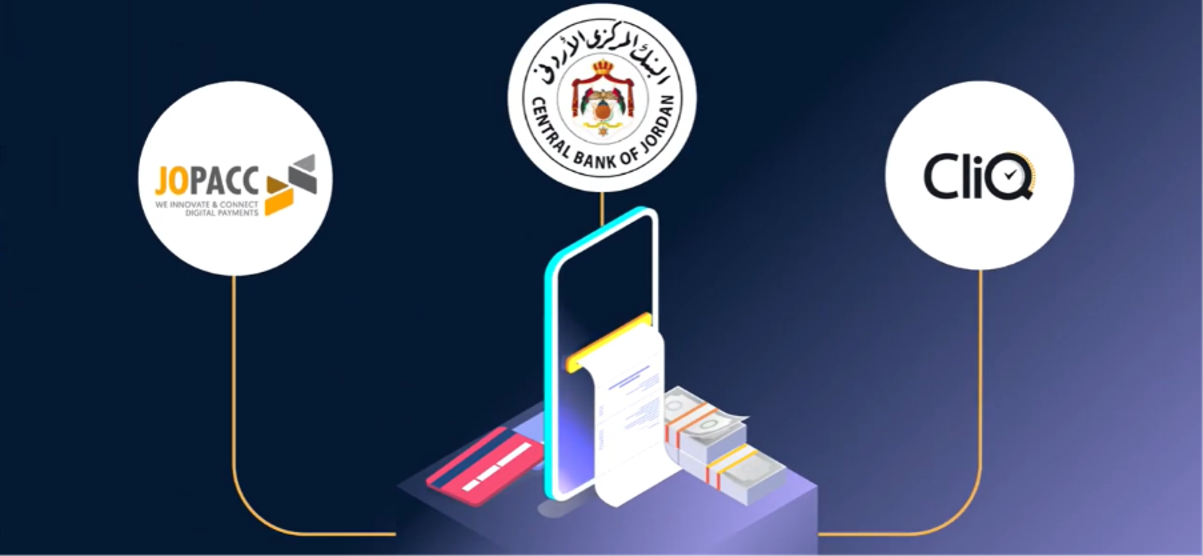Consumer empowerment and market conduct (CEMC) refers to policies and practices designed to promote stable and inclusive financial services via two interconnected pillars:
Empowering consumers to make more informed financial decisions via the provision of information, education and effective avenues for redress
Protecting consumers via effective regulation, supervision and enforcement of market conduct by financial services providers (FSPs).
AFI’s Consumer Empowerment and Market Conduct Working Group (CEMCWG)
A platform to discuss policy and regulatory issues related to consumer empowerment initiatives and market conduct regulations.
Launched in April 2011, CEMCWG aims to support consumer empowerment and protection in order to help secure access to and improve the quality of financial services. Its prime objective is to develop and share a common understanding of lessons learned and cost-effective policy tools, and to promote their adoption at the national level as well as in a broader international context.
Launched in April 2011, CEMCWG aims to support consumer empowerment and protection in order to help secure access to and improve the quality of financial services. Its prime objective is to develop and share a common understanding of lessons learned and cost-effective policy tools, and to promote their adoption at the national level as well as in a broader international context.
66
Member
Institutions
Institutions
58
Countries
219
Policy changes
30
Knowledge products
Chairs & Focal points

Chair
Gérard Nsabimana, National Bank of Rwanda

Co-Chair I
Dr. Khadijah Kishimba, Bank of Tanzania

Co-Chair II
Dr. Robert Mesrob Der Mesrobian, Central Bank of Armenia

Gender Focal Point Lead
Rachel Mushosho,
Reserve Bank of Zimbabwe
Reserve Bank of Zimbabwe

Gender Focal Point
Freda Diau, Central Bank of Solomon Islands
Objectives
Develop a shared understanding of good practices and cost-effective policy tools
Promote policy adoption at national and international levels
The CEMC Working Group achieves these objectives by:
Promoting transparency and disclosure
Encouraging effective sales and marketing practices
Promoting the harmonization of international initiatives
Creating avenues for help and redress
Championing the benefits.
Member Institutions
- Agency of the Republic of Kazakhstan for Regulation and Development of Financial Market
- Autorité de Contrôle de la Microfinance
- Banco Central de Reserva de El Salvador
- Banco Central de São Tomé e Príncipe
- Banco Central de Timor-Leste
- Banco Central del Paraguay
- Banco de Moçambique
- Banco Nacional de Angola
- Bangko Sentral ng Pilipinas
- Bangladesh Bank
- Bank Al-Maghrib
- Bank Negara Malaysia
- Bank of Ghana
- Bank of Namibia
- Bank of Papua New Guinea
- Bank of Sierra Leone
- Bank of Tanzania
- Bank of Uganda
- Bank of Zambia
- Banque Centrale de la République de Guinée
- Banque Centrale de Madagascar
- Banque Centrale de Mauritanie
- Banque Centrale de Tunisie
- Banque Centrale des Etats de l’Afrique de l’Ouest (BCEAO)
- Banque Centrale du Congo
- Banque de la République du Burundi
- Central Bank of Armenia
- Central Bank of Egypt
- Central Bank of Eswatini
- Central Bank of Jordan
- Central Bank of Kenya
- Central Bank of Lesotho
- Central Bank of Liberia
- Central Bank of Nigeria
- Central Bank of Samoa
- Central Bank of Sudan
- Central Bank of Seychelles
- Central Bank of Solomon Islands
- Central Bank of Sri Lanka
- Central Bank of The Gambia
- Central Bank of the Republic of Uzbekistan
- Centrale Bank van Suriname
- Comisión Nacional Bancaria y de Valores de México (CNBV)
- Comisión Nacional de Bancos y Seguros de Honduras
- Direction Générale du Trésor, Ministère de l’Economie et des Finances, Madagascar
- Financial Regulatory Commission of Mongolia
- Maldives Monetary Authority
- Microcredit Regulatory Authority of Bangladesh
- Ministère de l’Économie et des Finances de la Côte d’Ivoire
- Ministère des Finances et du Budget du Sénégal
- Ministère des Finances de la République Tunisienne
- Ministry of Finance Eswatini
- Ministry of Finance and National Planning Zambia
- National Bank of Cambodia
- National Bank of Rwanda
- National Bank of Tajikistan
- National Reserve Bank of Tonga
- Nepal Rastra Bank
- Palestine Monetary Authority
- Reserve Bank of Fiji
- Reserve Bank of Malawi
- Reserve Bank of Zimbabwe
- Reserve Bank of Vanuatu
- Superintendencia de Bancos de la República Dominicana
- Superintendencia de Bancos del Ecuador
- Superintendencia de la Economía Popular y Solidaria de Ecuador
- Superintendencia General de Entidades Financieras de Costa Rica (SUGEF)
Subgroups & Planned Activities
Financial Education Subgroup
Increased access and usage of financial services and products is a catalyst for economic empowerment and development for marginalized and vulnerable target groups such as women, the youth and forcibly displaced persons. Financial education means a process of providing people with knowledge, understanding, skills and confidence to make financial decisions and take actions which are appropriate to their circumstances and needs. On the other hand, financial literacy is the outcome of financial education programs which means the knowledge, understanding, skills and confidence that people have to assist them in making sound financial decisions and actions. Financial literacy programs can help to promote financial education programs that are scalable and sustainable and can also help to pave the way for their financial inclusion in the medium to long term.
Planned deliverable: 1) Repository of online financial literacy tools, 2) Update of two knowledge products: Financial Capability Barometer and Financial Education LAC Case Study.
Market Conduct Supervision Subgroup
Until recently, the main objective of a Risk-Based Supervision (RBS) approach was ensuring the safety and soundness of the financial system. Originally used for prudential supervision of banks and insurance companies, RBS has been modified for use in pensions and is now being considered for market conduct supervision. The challenges of supervising consumer protection are the same: deploying sufficient resources, focusing on both present and future risks, preventing risks from escalating and taking early corrective actions. There is still a need to assess the effectiveness of CEMC supervision by regulators especially as it relates to planning and implementation of onsite examinations. To address main challenges related to complaint handling in Central Banks, including (but not limited to) human resource management, feedback mechanism, enabling regulations required for effective complaint handling and effective enforcement mechanisms.
Planned deliverable: 1) Guideline Note on Impact Assessment of Financial Service Providers, 2) Market Conduct Supervision Manual.
Consumer Protection for Innovation Subgroup
This new subgroup was formed with the objective to tackle issues around consumer protection and innovations. As technology advances, so do the risks associated with data breaches and unauthorized access. Robust data protection laws and practices are essential to safeguard consumer information. Encryption, access controls, and transparent data handling are critical components. With the rise of digital transactions, consumers need assurance that their financial assets are secure (e.g. with multi-factor authentication, real-time fraud detection, and secure payment gateways). Innovations often introduce new products and services and ensuring their safety and reliability is paramount. Regulatory oversight, product testing, and clear liability frameworks protect consumers. Financial literacy programs, awareness campaigns, and accessible information empower consumers about their rights, risks, and choices. In an era of complex contracts and terms, consumers must understand what they’re agreeing to. Plain language contracts, disclosure requirements, and transparent pricing foster trust. As AI, Internet of Things (IoT), and blockchain gain prominence, consumer protection must adapt. Ethical AI, data ownership, and smart contract security are pivotal.
Planned deliverable: 1) Webinar series, 2) Focus group on Bank Supervision Assessment (BSA) tool.
Maya Declarations
Consumer protection and empowerment are key to financial inclusion efforts and its aim of ensuring that everyone is included in their country’s financial sector. This is clearly demonstrated in the number of Maya Declaration targets that are categorized under CEMC – including targets on consumer protection, financial literacy and financial education.
Primary thematic area
2014
2015
2016
2017
2018
2019
2020
2021
2022
2023
2024
2025

Consumer Empowerment
and Market Conduct
Consumer Protection
Financial Literacy and Financial Education
Total Number of MDC Targets
77
99
109
124
143
154
177
184
223
267
300
323
10
18
21
32
38
47
67
80
100
125
150
159
Total Completed Targets
Targets Remaining in Progress
Completion Rate
67
81
88
92
103
107
110
104
123
141
150
173
13%
18%
19%
26%
27%
31%
38%
43%
45%
47%
50%
48%
CEMC & Gender
According to the Global Findex 2021, 23 percent of unbanked adults globally do not trust the financial system. Of all the unbanked adults, 54 percent are women. Apart from lack of trust in the financial system, women face other challenges that hamper their access to financial services. These include information asymmetry and social norms which pose unique consumer protection issues. It is therefore essential that regulators and policy makers begin to explore gender specific consumer protection practices. These include having laws, regulations, business practices, and information that enable women to use financial services safely and responsibly.
CEMCWG News & Publications













